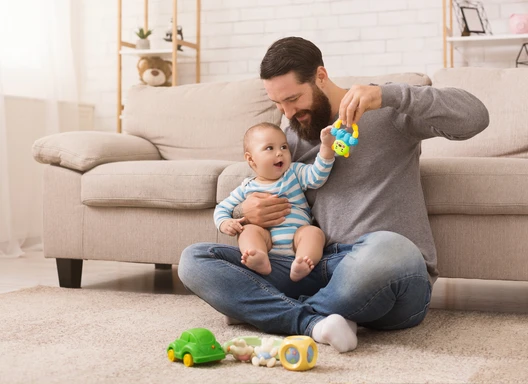On this page...
What is Early ACCESS?
Early ACCESS is Iowa’s system for providing early intervention services. It is available to infants and toddlers from birth to age three years who:
- Have a health or physical condition that may affect his or her growth and development
- Have developmental delays in his or her ability to play, think, talk, or move
The first three years of a child’s life are the most important when setting the foundation for ongoing development. Starting supports and services early, improves a child’s ability to develop and learn. The focus of Early ACCESS is to support parents to help their children learn and grow throughout their everyday activities and routines. Through coaching, Early ACCESS service providers work with parents and other caregivers to help their children develop to their fullest potential.
Procedural Safeguards for Early ACCESS, Iowa's Part C of IDEA – Parents have rights, known as procedural safeguards, which apply to every aspect of the early intervention process, such as evaluation, access to records, and Individualized Family Services Plan (IFSP) team participation.
Back to topEarly ACCESS Providers
Iowa's area education agencies (AEAs) are responsible for administration of Early ACCESS across the state to ensure that no matter where a family lives in Iowa, services will be available. Currently, Iowa is divided into nine AEA regions.
Service coordination, assessments, evaluations and any needed early intervention services provided by Early ACCESS are available at no cost to families.
Three state agencies, known as signatory agencies, are responsible for the state-level early intervention system:
- Iowa Department of Education (Lead agency)
- Iowa Department of Health and Human Services
- University of Iowa's Child Health Specialty Clinics
A memorandum of agreement is used to formalize their commitment to support the early intervention system. Iowa's governor designated the Department of Education to be the lead agency among the signatory agencies with fiscal and legal responsibilities.
Back to topIowa Administrative Code for Early ACCESS
Iowa Administrative Code 281-120 establishes Iowa's Early ACCESS Integrated System of Early Intervention Services and are aligned with the federal Individuals with Disabilities Education Act (IDEA) of 2004, Part C and federal regulations (34 C.F.R. pt. 303).
Back to top
